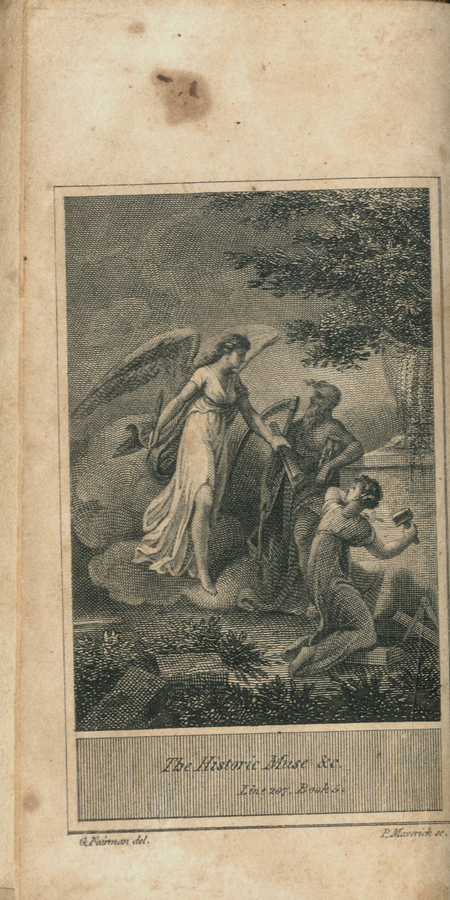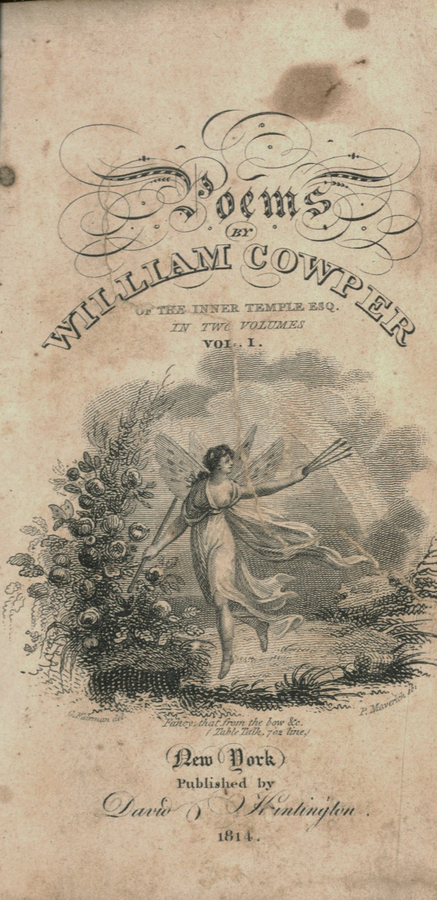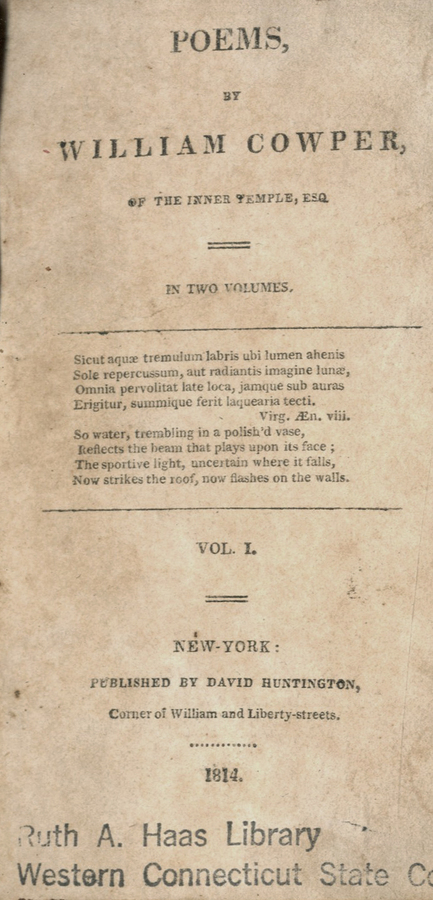William Cowper (1731 – 1800) was an English poet and hymnodist. One of the most popular poets of his time, Cowper changed the direction of 18th century nature poetry by writing of everyday life and scenes of the English countryside. In many ways, he was one of the forerunners of Romantic poetry. Samuel Taylor Coleridge called him "the best modern poet", while William Wordsworth particularly admired his poem Yardley-Oak.
After being institutionalised for insanity in the period 1763–65, Cowper found refuge in a fervent evangelical Christianity, the inspiration behind his much-loved hymns. He continued to suffer doubt and, after a dream in 1773, believed that he was doomed to eternal damnation. He recovered and wrote more religious hymns.
His religious sentiment and association with curate John Newton (who wrote the hymn "Amazing Grace") led to much of the poetry for which he is best remembered. His poem "Light Shining out of Darkness" gave English the phrase: "God moves in a mysterious way/His wonders to perform."
He also wrote a number of anti-slavery poems and his friendship with Newton, who was an avid anti-slavery campaigner, resulted in Cowper being asked to write in support of the Abolitionist campaign. Cowper wrote a poem called 'The Negro's Complaint' (1788) which rapidly became very famous and was often quoted by Dr. Martin Luther King, Jr. during the 20th century civil rights movement. He also wrote several other less well known poems on slavery in the 1780s, many of which attacked the idea that slavery was economically viable.
http://en.wikipedia.org/wiki/William_Cowper
This volume is inscribed by Harriet Schuyler to Jacob Van Orden. Harriet married Jacob in 1815.
http://www.rootsweb.ancestry.com/~nygreen2/jacob_van_orden_family_bible1.html
Features: Inscribed, Hearriet Schuyler to Samuel Van Vechten


